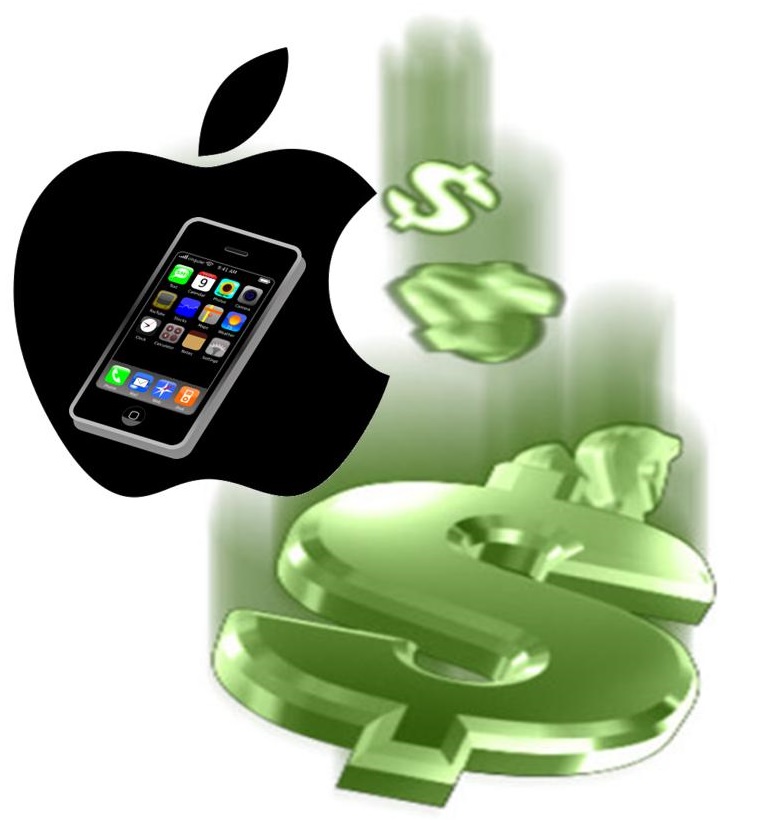This achievement had already been reached within the first half of this year.
According to some of the latest data that has been issued from comScore, the estimates about the first half of this year are that the total sales over mobile commerce broke the $10 billion mark within that time period.
These figures reflect the transactions that were completed within the United States, alone.
According to the report from comScore, the total that was reached within the first two quarters in terms of mobile commerce sales in the United States over smartphones and tablets was an estimated $10.6 billion. That announcement was first made by the company when it released its figures on Tuesday.
Purchases over smartphones made up the majority of the mobile commerce sales totals.
 The data showed that mobile commerce purchases over smartphones made up $6.7 billion of the total for the first six months of the year. Tablets contributed the remaining $3.9 billion. That said, it is important to point out that there are approximately twice as many smartphone users as there are tablet users in the United States, which can help to show why the total for the smaller device was notably higher.
The data showed that mobile commerce purchases over smartphones made up $6.7 billion of the total for the first six months of the year. Tablets contributed the remaining $3.9 billion. That said, it is important to point out that there are approximately twice as many smartphone users as there are tablet users in the United States, which can help to show why the total for the smaller device was notably higher.
Overall the actual commercial purchases made over mobile commerce on smartphones were responsible for the final total, whereas, over tablets included other sectors and forms of shopping.
Moreover, it should also be pointed out that the $10.6 billion mobile commerce sales total still makes up only just shy of 10 percent of the online shopping sales as a whole. This, despite the fact that the first iPhone as released six years ago and, therefore, has provided shoppers with a means of purchasing over wireless devices for more than half of a decade.
Also important to understand about the comScore mobile commerce data is that the figures that were assembled do not include those that were made via mobile payments. Those would involve the sales that are completed within a brick and mortar shop, but where the smartphone was used as a payment method. It was only the purchases made exclusively over the small screen devices that were taken into consideration.
Apple could enter into mobile commerce arena with biometric technology
Apple may be gearing up to make a strong push into the mobile commerce sector. The company has had an interest in mobile payments for some time, but has taken a cautious approach to mobile commerce due to concerns regarding NFC technology. Apple had claimed that the technology was simply not capable to meet its needs and had been looking for an effective alternative. The company may have found that alternative in biometrics.
AuthenTec technology may be a boon for Apple
In 2012, Apple acquired AuthenTec, a company that had specialized in using biometric technology for security purposes. The acquisition gave Apple access to the company’s technology and enables Apple to make use of this technology as it sees fit. AuthenTec’s fingerprint sensors were particularly attractive to Apple, which believes such technology could be an effective way to make mobile commerce more secure. Such technology could also make security for mobile devices somewhat more convenient as it would eliminate the need for consumers to input their passwords multiple times a day.
 iPhone 5S photos suggest changes to hardware
iPhone 5S photos suggest changes to hardware
Apple is expected to release the iPhone 5S later this year and leaked images of the device have recently found their way to the Internet. These images show some modest changes to iPhone hardware, suggesting that there may be room for biometric technologies and other, similar features. There is no guarantee that this will be the case, of course, as Apple has a track record of making drastic renovations to iPhone hardware before the official launch of a new generation of these devices.
Apple shows some interest in mobile commerce
Rumors had suggested that the iPhone 5 would be equipped with NFC technology, but Apple dispelled these rumors and garnered harsh criticism from consumers due to the fact that the device did not feature NFC support. The lack of NFC technology has kept the iPhone 5 from serving as a mobile commerce platform. This has set Apple somewhat behind other companies in this sector, but Apple may soon be able to make a powerful entry into mobile commerce if its biometrics initiatives are successful.
 The data showed that mobile commerce purchases over smartphones made up $6.7 billion of the total for the first six months of the year. Tablets contributed the remaining $3.9 billion. That said, it is important to point out that there are approximately twice as many smartphone users as there are tablet users in the United States, which can help to show why the total for the smaller device was notably higher.
The data showed that mobile commerce purchases over smartphones made up $6.7 billion of the total for the first six months of the year. Tablets contributed the remaining $3.9 billion. That said, it is important to point out that there are approximately twice as many smartphone users as there are tablet users in the United States, which can help to show why the total for the smaller device was notably higher.
 iPhone 5S photos suggest changes to hardware
iPhone 5S photos suggest changes to hardware